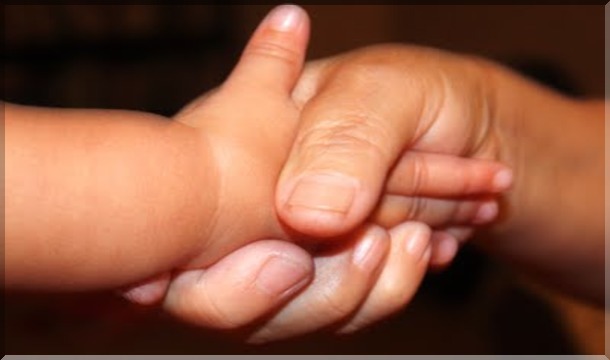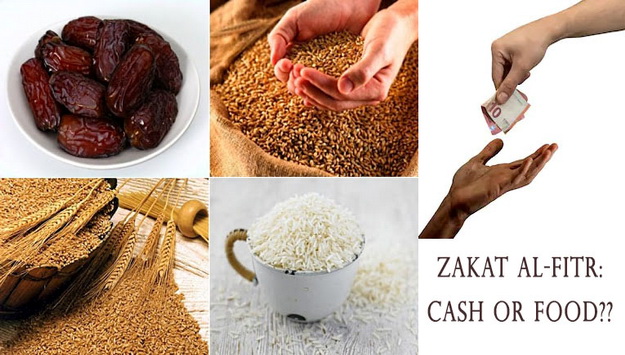I contemplated the way some people, some of whom I have lived with for years, deal with others,. I do not ever recall them laughing, or even smiling at a joke out of courtesy, or reacting positively to the person speaking to them. I used to think that perhaps this was how they were nurtured and that they were unable to alter their nature. I was therefore stunned one day to see some of them with a group of rich and powerful people, laughing and being courteous. I then realised that they only did this for their own personal interests and are thereby losing out on great rewards from Allah.
A believer worships Allah by being well-mannered and dealing pleasantly with all, not to attain status or wealth, or for people’s praise, or to get married, etc., but only so that Allah may love him and make him beloved to His creation. Yes! Whoever considers exercising good manners as worship will deal courteously with everyone, be he rich or poor, a manager or a tea-boy. If one day a poor cleaner on the street stretches out his hand for you to shake it, and then another day a director of some company stretches his hand out in the same way, will you treat them equally? Will you welcome them both, and smile at them equally?
The Prophet (Sallallahu alayhi wassallam) would certainly treat them both equally in terms of welcoming them and showing them sincere conduct and compassion. Who knows, perhaps the one you may belittle and look down upon might actually be better in Allah’s sight than he who you look up to and show honour and respect to.
The Prophet (Sallallahu alayhi wassallam) said, “The most beloved of you to me, and the closest of you to me on the Day of Resurrection are the best of you in manners.” [al-Tirmidhi, Sahih]
The Prophet (Sallallahu alayhi wassallam) also said to al-Ashaj bin ‘Abd Qays, “You have two qualities that Allah and His Messenger love.”
What are these two qualities? Praying at night? Fasting all day?
Al-Ashaj became overjoyed and said, “What are the two qualities, O Messenger of Allah?”
The Prophet (Sallallahu alayhi wassallam) said, “Forbearance and patience.” [Ahmad and Muslim]
The Prophet (Sallallahu alayhi wassallam) was asked about piety, and he replied, “Piety is to show good manners.” [Muslim]
He (Sallallahu alayhi wassallam) was asked about the deed on account of which most people will enter paradise, he (Sallallahu alayhi wassallam) said, “Fear of Allah and good manners.” [al-Tirmidhi, Sahih]
The Prophet (Sallallahu alayhi wassallam) said, “The most complete in faith are those best in their character, those who are easy to socialise with, and those who get along with others and others get along with them. There is no good in the one who cannot get along with others and others cannot get along with him.” [al-Tirmidhi, Sahih]
The Prophet (Sallallahu alayhi wassallam) said, “There is nothing heavier in the scales than good manners.” [Abu Dawud, Sahih]
The Prophet (Sallallahu alayhi wassallam) said, “A person by his good character reaches the rank of the one praying at night and fasting all day.” [al- Tirmidhi, Sahih]
The one who improves his character becomes successful in both worlds. Consider the incident of Umm Salamah – may Allah be pleased with her – when she sat with the Messenger of Allah (Sallallahu alayhi wassallam) and thought about the Hereafter and what Allah had promised her.
She said, “O Messenger of Allah! A woman might be married twice in this world. When she and her husbands die and they all enter paradise, who is she going to be with?”
What did he (Sallallahu alayhi wassallam) say in response? That she will be with the one who prayed the longest? Or the one who fasted the most? Or the most knowledgeable of them?
No! Rather, he (Sallallahu alayhi wassallam) said, “She will be with the best of them in character.”
Umm Salamah was surprised. When the Prophet (Sallallahu alayhi wassallam) noticed this, he said, “O Umm Salamah! Good character makes one successful in this life and the next.”
Yes! The best of both worlds. He achieves the best of this world by earning people’s love, and the best of the next by gaining immense reward. No matter how much good a person does, his good deeds would always be marred by bad character.
Once it was mentioned to the Prophet (Sallallahu alayhi wassallam) that a certain woman prayed, fasted, gave in charity and did many other righteous deeds, but at the same time harmed her neighbours by her words (i.e., she was bad mannered). He (Sallallahu alayhi wassallam) replied, “She will be in Hell.”
The Prophet (Sallallahu alayhi wassallam) was the best example to follow in every aspect of character. He was the most generous, the bravest, the most forbearing, and more bashful than a virgin. He was the most truthful and trustworthy person, as the disbelievers will bear witness to even before the believers, as will the sinners before the righteous. So much so that Khadijah – may Allah be pleased with her – said to the Prophet (Sallallahu alayhi wassallam) when he first received revelation, “Allah shall never subject you to any indignity, for you always maintain your ties with those of your kin, and you are always generous in giving; you are diligent, and you pursue what others regard as a lost cause; you calm the heart of your guest, and you lend your support to those who seek justice and redress.”
As a matter of fact, Allah’s words in his praise are something we will continue to recite until the Last Day, “And indeed, you (O Muhammad (Sallallahu alayhi wassallam)) are on an exalted standard of character!”
The Prophet’s character in its entirety was the Quran. When he recited, “Be good, for Allah loves those who are good” he was good to the old and the young, the rich and the poor, the noble and the weak. When he heard Allah’s words, “Forgive and overlook…” he forgave and overlooked. When he recited, “Speak well to the people…” he spoke well to all.
If the Prophet (Sallallahu alayhi wassallam) really is our example, then let us study his life carefully, and in particular how he would deal with others, rectify their faults, bear their harms with patience, tire himself at their service, and call them to guidance. One day he was seen helping a poor person, the next making peace between two Muslims, the next calling the disbelievers to Islam, and so on, until he grew old and his bones became weak.
‘A’ishah – may Allah be pleased with her – said while describing the Prophet (Sallallahu alayhi wassallam), “Most of his prayers, when he grew old, he offered sitting.”
Can we guess why?
She explained, “Because the people had completely exhausted him.”
The Prophet (Sallallahu alayhi wassallam) was so eager to improve his character that he would pray to Allah, “O Allah, just as you have beautified my physical being, beautify my character.” [Ahmad, Sahih]
He (Sallallahu alayhi wassallam) also would say, “O Allah, guide me to the best of manners, for none guides to them except You. Protect me from bad manners, for none can protect me except You.” [Muslim]
Hence, we are in need of emulating the Prophet (Sallallahu alayhi wassallam) in his character when we deal with Muslims so that we may win them over, and when we deal with the non-Muslims so that we can educate them about Islam.
A hint…
Purify your intention so that your interpersonal skills can turn into acts of worship, with which you can draw closer to Allah.
 navedz.com a muslim's Quest for the truth
navedz.com a muslim's Quest for the truth








Assalamou Alaykoum,
Many thanks for these words of wisdom. This is indeed our biggest crisis today as a nation… May Allah have mercy on us, purify our intentions and beautify our characters all…
Ameen!